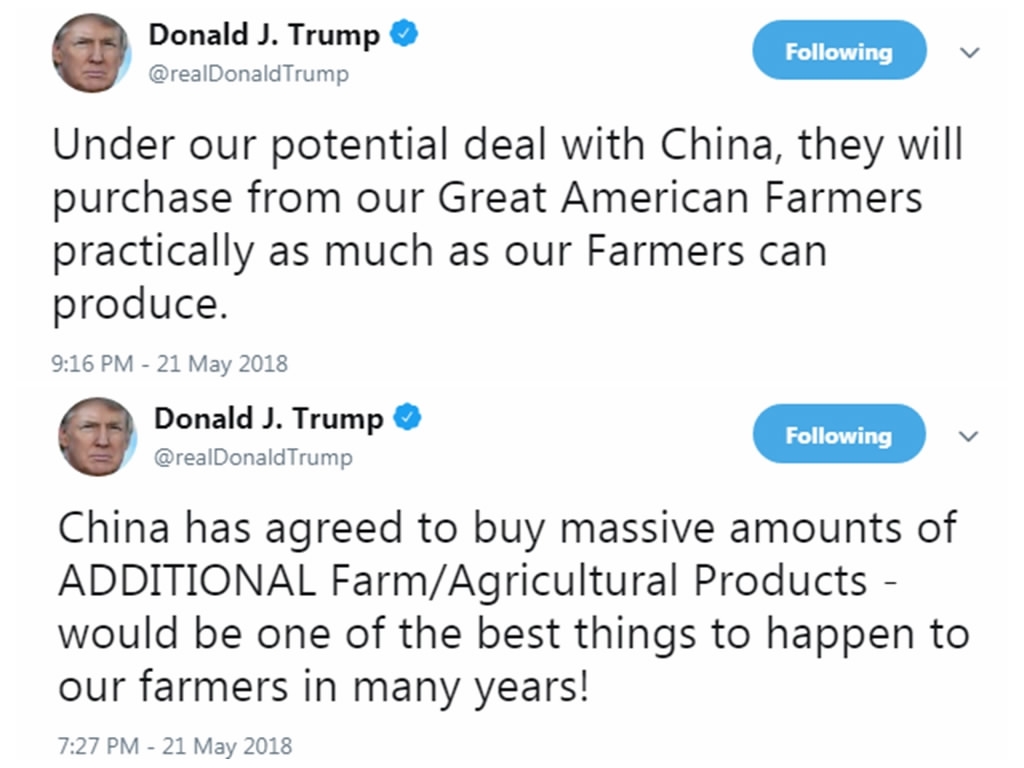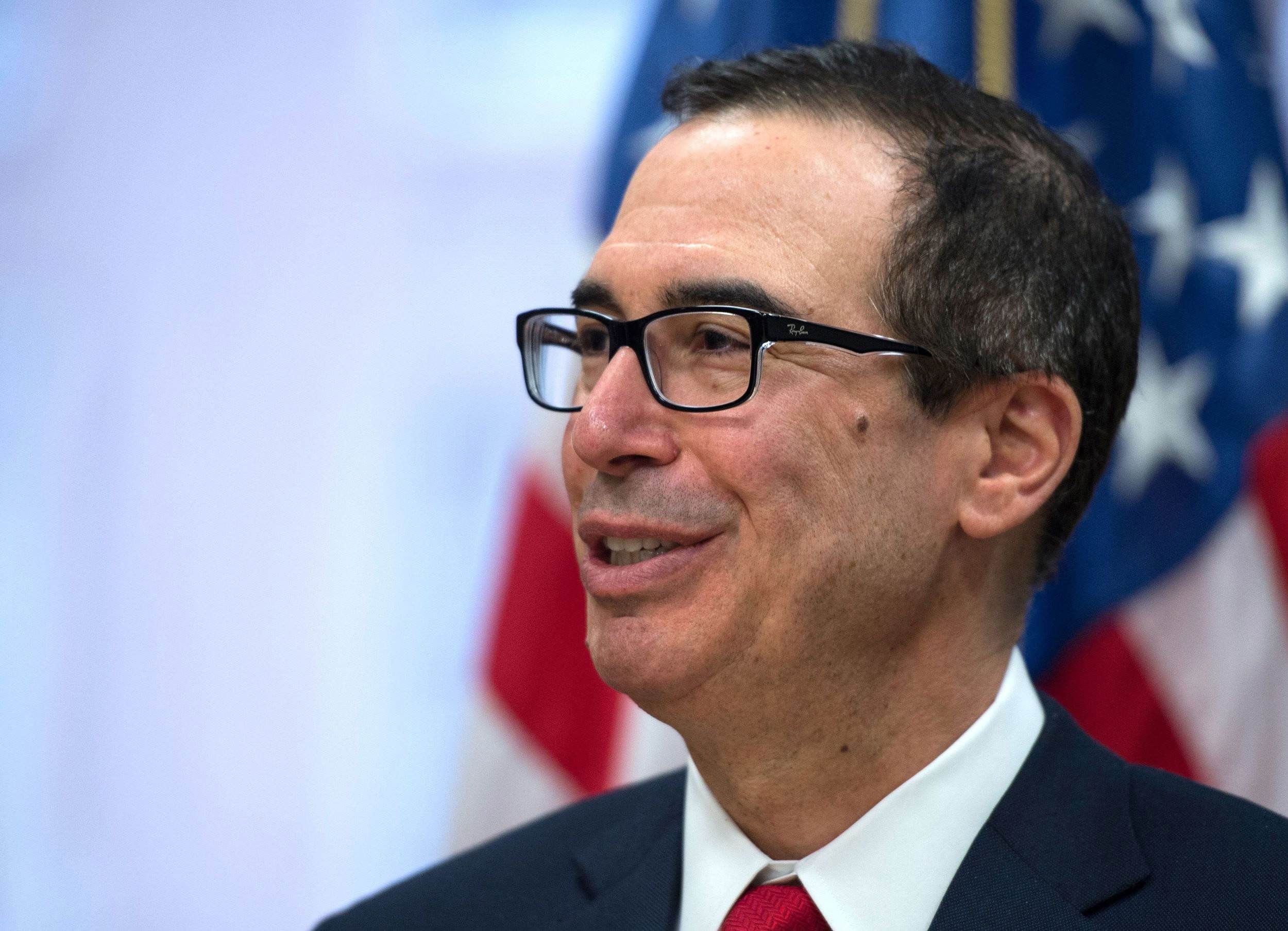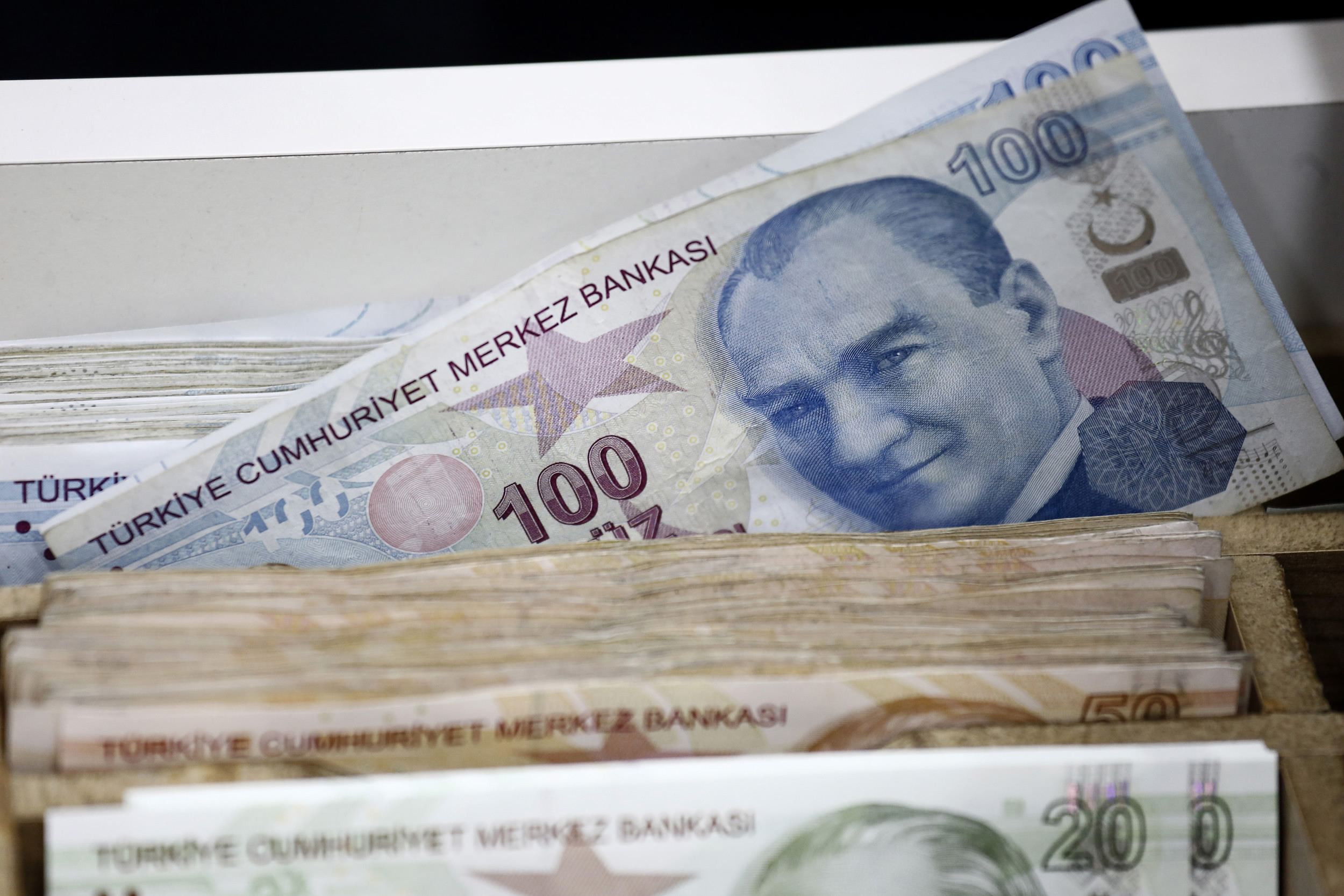
Business
12:09, 22-May-2018
China-US trade: Buoyant investors push up dollar as EMs hit new lows
Nicholas Moore

The mood in the US energy and agricultural sectors was very positive on Monday, after the news that China and the US had reached a consensus on trade and agreed to avert a trade war.
China has pledged to increase its imports of US goods and produce, with investors reading the consensus as a win-win victory, particularly for Chinese consumers, US farmers, energy firms and companies particularly exposed to China-US ties.
However, while the trade talks may have been positive for China and the US, investors have again pushed the dollar higher, putting even more pressure on struggling emerging market currencies.
Soybean prices up as Trump talks up farmer benefits
US soybean farmers, long concerned about how trade frictions would affect their business with China, breathed a collective sigh of relief on Monday, as prices saw their highest one-day increase in nearly a month, moving up by around 2.7 percent.
It wasn’t only investors talking up the effect of trade talks on the US agricultural sector. President Donald Trump tweeted on Monday “under our potential deal with China, they will purchase from our Great American Farmers practically as much as our Farmers can produce.”
A few hours earlier, the president also tweeted “China has agreed to buy massive amounts of ADDITIONAL Farm/Agricultural Products - would be one of the best things to happen to our farmers in many years!”

Screenshots via Twitter
Screenshots via Twitter
Following the trade consensus, Morgan Stanley said that while there would be little immediate impact, in the near term US farmers can expect a 60-90 billion US dollar increase “in Chinese purchases of US goods, with a rise in agriculture imports (particularly beef).”
After China reopened its markets to US beef last June, demand has been so high that Kent Bacus, director of international trade at the National Cattlemen's Beef Association, told CNBC “once [our Chinese distributors] get it they can't sell it fast enough. We can't supply them with enough beef right now.”
Energy firms optimistic after talks
Morgan Stanley also saw the consensus reached between Beijing and Washington as positive for US energy firms, with analysts estimating China could import an additional nine billion US dollars’ worth of American liquefied natural gas in the near term, provided the US improves its logistical infrastructure.
Credit Suisse also told investors it saw reason for optimism in the US energy sector, which announced on Monday that 133,000 new jobs were created in 2017.
US Treasury Secretary Steven Mnuchin was particularly bullish on energy, telling CNBC, “I think there's a massive opportunity for the US to become a major supplier of energy to China. I think we can easily get about 40 or 50 billion dollars of energy, and if we can produce and send more with infrastructure, they can even take more."

US Treasury Secretary Steven Mnuchin. /VCG Photo
US Treasury Secretary Steven Mnuchin. /VCG Photo
FTSE hits record high, emerging markets reach new lows
Ever since the US began threatening China with punitive tariffs, concerns over trade tensions have knocked global confidence, with emerging markets particularly affected as risk-averse investors flocked to safe havens and pushed up the US dollar.
After the latest round of China-US trade talks reached a positive consensus, London’s FTSE 100 hit a record high of 7859.17 in Monday trading, while France’s Cac rose by 0.41 percent.
Chinese and other Asian markets on Monday had earlier closed high after the trade consensus, while investors on Wall Street also pushed the Dow Jones and S&P 500 up by 1.21 and 0.74 percent respectively. US companies particularly exposed to ties with China saw their share prices soar, with Boeing closing 3.6 percent higher.

The Turkish lira has now dropped by almost 17 percent this year. /VCG Photo
The Turkish lira has now dropped by almost 17 percent this year. /VCG Photo
However, emerging markets came under yet more pressure as the US dollar continued to soar, pushing India’s rupee to a 16-month low, South Africa’s rand was at its lowest point in five months, and Turkey’s lira plummeted to yet another record low.
One of Istanbul’s leading brokerage firms, Alnus Yatirim, wrote in a note to investors “God help Turkey” after trading closed Monday, adding “we’re faced with a central bank that is watching the market when it needs to lead and direct it.”

SITEMAP
Copyright © 2018 CGTN. Beijing ICP prepared NO.16065310-3
Copyright © 2018 CGTN. Beijing ICP prepared NO.16065310-3